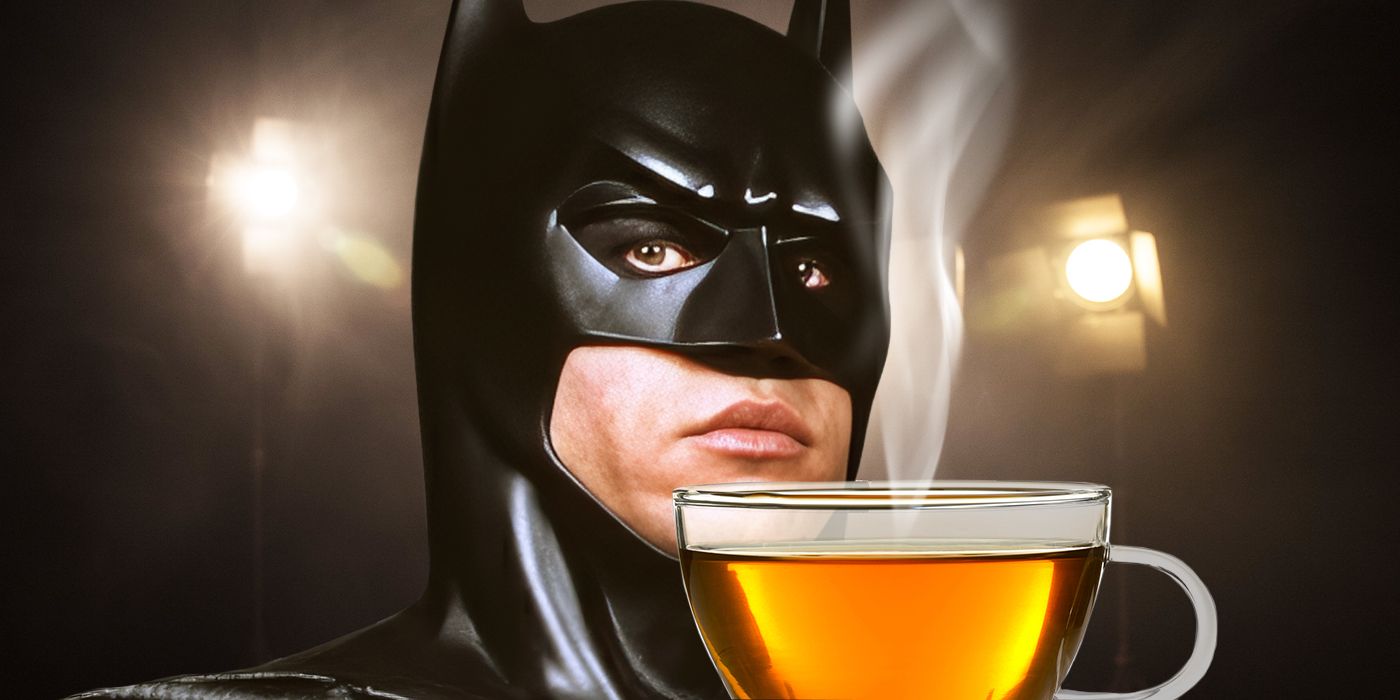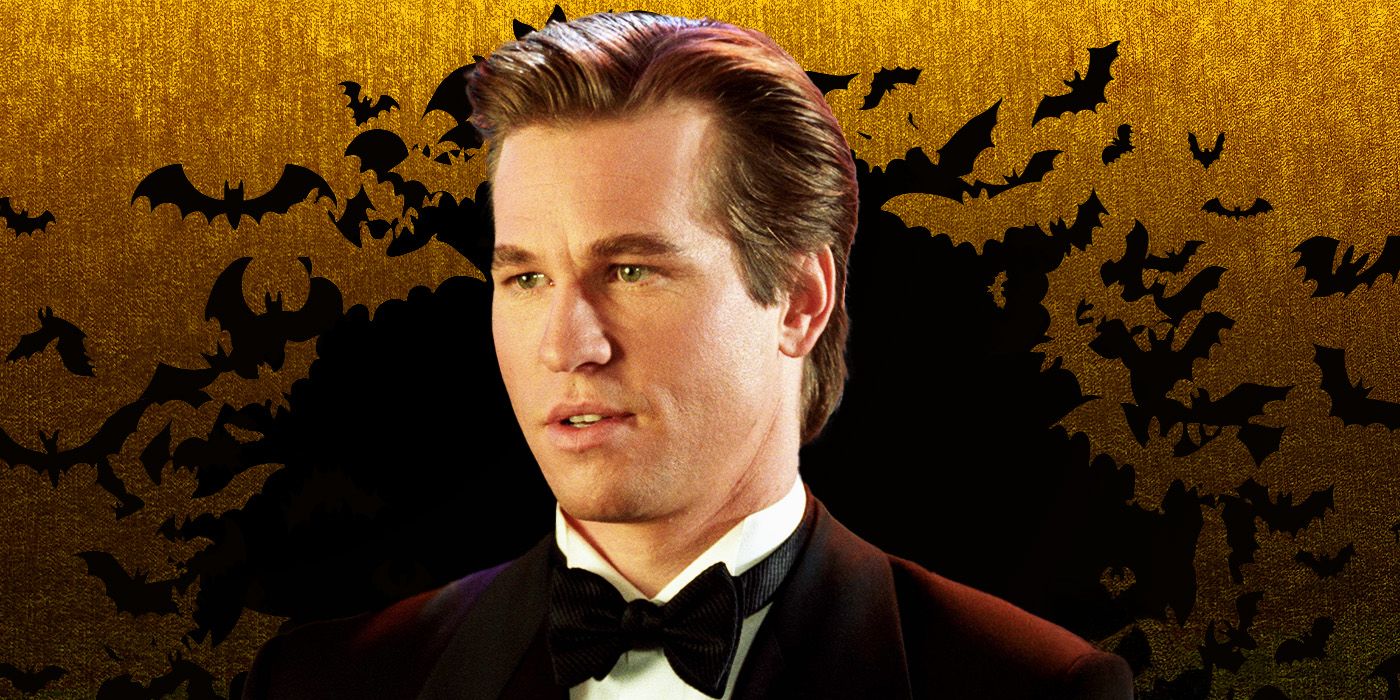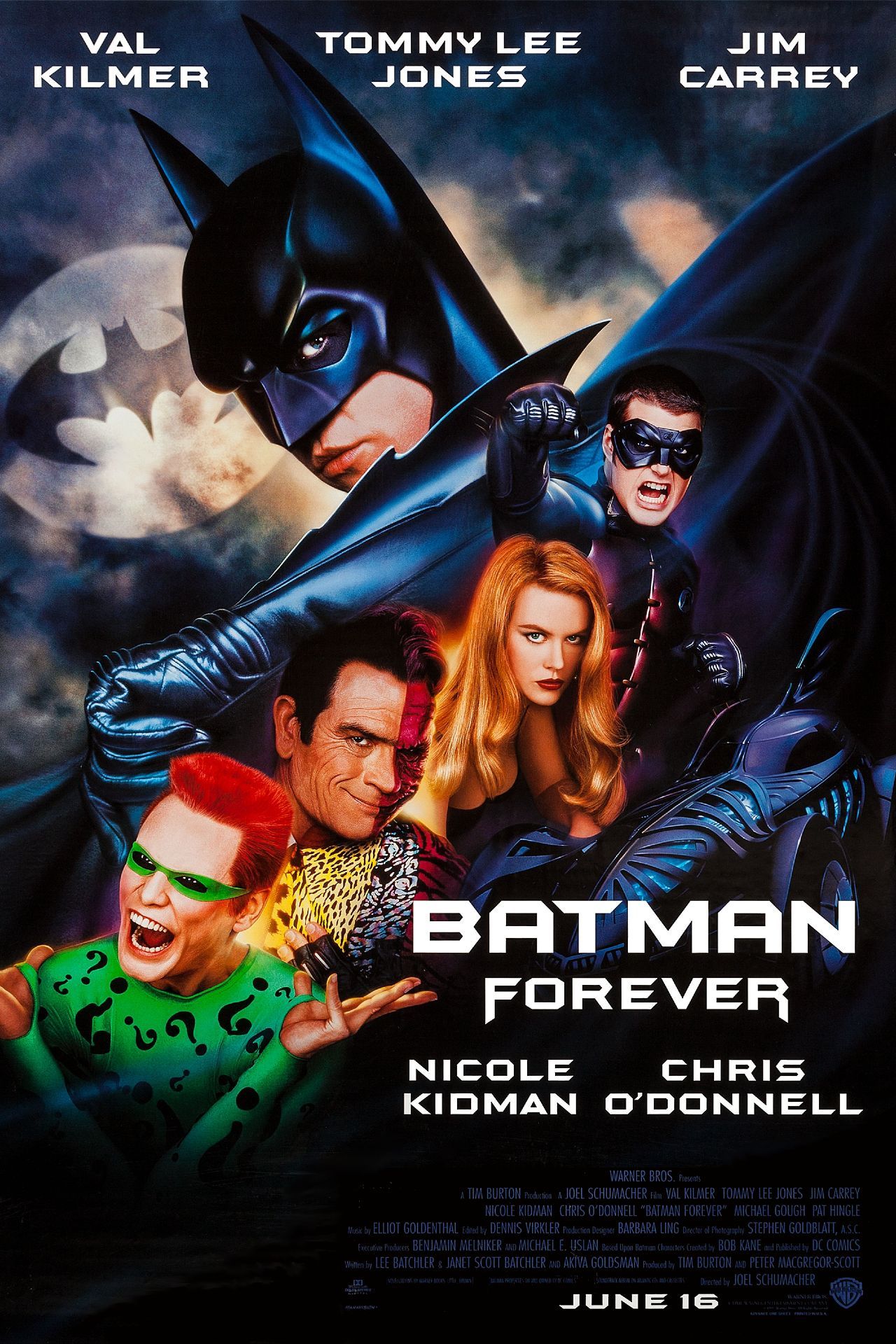Physical Address
304 North Cardinal St.
Dorchester Center, MA 02124
Physical Address
304 North Cardinal St.
Dorchester Center, MA 02124

Batman Forever was supposed to be good times for all, like a rainbow after the gloomy storm that was the Tim Burton Batman movies. Thanks to a temper tantrum from McDonald’s, the third Batman film was directed by Joel Schumacher instead of Burton, trading Burton’s psychological trauma for Schumacher’s kitschy splendor. Intended to lighten the emotional load and make Warner Bros.’s mega-franchise more family-friendly, the production ironically led to the kind of nasty infighting that you would never want to happen in your own family. You would think that this is a situation Batman could have helped clean up, except even Batman was too busy beefing to be much help.
It’s little surprise that Val Kilmer would wind up having a bad time when making Batman Forever as the titular Caped Crusader, for a number of reasons. He signed on without reading the actual script, he found being in the Batsuit miserable and horrifically isolating, and he felt massive envy that his costars Jim Carrey and Tommy Lee Jones (playing the Riddler and Two-Face, respectively) got to have all the real acting fun. Unfortunately, by this time, he had already garnered a consistent reputation for being argumentative and difficult to work with. It seems like all those factors snowballed into a two-week cold war between him and Schumacher, who attested that Kilmer was wildly unprofessional throughout the shoot, ranging from yelling at and bullying the crew, intentionally ruining his takes, and arriving late to set covered in blankets for seemingly no reason.

Related
This Deleted ‘Batman Forever’ Scene Would’ve Given Us a Better Understanding of Bruce Wayne
Why so serious, Bruce?
When Kilmer decided he wouldn’t reprise his role in Batman & Robin, he claimed it was due to scheduling conflicts, but later admitted in his memoir that it was mostly due to how miserable he was during Batman Forever and that he didn’t want to go through it all again. That said, he at least appreciates the affection that people have for Batman and his time in the suit, with even Schumacher praising him years later as “a fabulous Batman.” This could be chalked up to Kilmer poorly mismanaging his stress and realizing how ill-equipped he was for this kind of role — which of course doesn’t excuse his behavior — but it’s nice to know that Schumacher can speak graciously on the impact he left behind.
Much less gracious was the feud that developed quickly between Jim Carrey and Tommy Lee Jones, who seemed to have immediately started off on the wrong foot. Theirs was a primal personality difference: Carrey is maximum improvisational chaos personified, while Jones is notoriously humorless and treats everything about acting like a job that needs to be done. Schumacher claimed that while Carrey was a model citizen, Jones “wasn’t kind to Jim,” and accused him of being “overpaid and overprivileged,” annoyed that Carrey was constantly stealing scenes from him with his signature antics. Carrey later told his own version of what happened between them and why he thinks Jones was so grouchy, and it just makes Jones look petty. (Carrey theorized that Jones was salty at him because Dumb and Dumber came out the same weekend as a Tommy Lee passion project called Cobb and crushed it at the box office.)
Whatever the real reason, Carrey told a story about running into Jones at a restaurant, then going up to say “hi” to him, thinking things were cool between them. Apparently, he was extremely wrong, as all the blood immediately drained from Jones’ face “in such a way that I realized that I had become the face of his pain or something,” as he went in for what I can only picture being the most sarcastically aggressive hug of all time. As they hugged, Jones whispered in his ear, “I hate you. I really don’t like you… I cannot sanction your buffoonery.” Funnily enough, this happened the night before they shot the big scene where Riddler and Two-Face meet each other for the first time, and it makes that scene suddenly feel like a documentary recreation of their fateful encounter in real life.
The irony of all this is that the behind-the-scenes scuffles are reflected in the finished product, as Batman Forever winds up being way more busy and strangely abrasive than its initially gentle ambitions. You can feel Kilmer’s depression in how glum and stricken his Bruce Wayne is, and the Riddler-Two-Face bromance constantly has an underpinning of two rams butting each other’s heads, which does actually add to the comedy. Rather than just be a brighter and more wholesome depiction of Batman, it goes so far in the other direction that it feels more like a big-budget version of the Adam West TV show, which is meant solely as a compliment. Far more controlled in its direction than Batman & Robin, Batman Forever isn’t exactly one of the better Batman movies, but it does deserve more respect for having its own identity that isn’t nearly as irritating or slovenly prepared as what would come next.

Batman Forever
June 9, 1995
117 Minutes
Bob Kane, Lee Batchler, Janet Scott Batchler, Akiva Goldsman